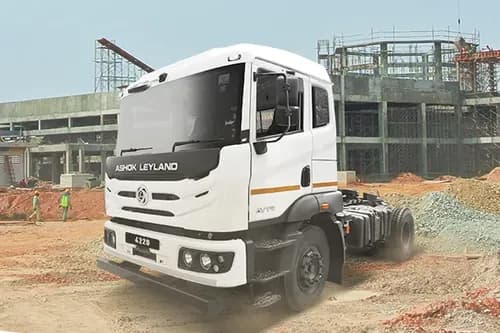Ad
Ad
Soil Health Card Scheme in India: Features, Benefits, Application Process, and More
The Soil Health Card Scheme is a government initiative launched in India in 2015 to assess the soil fertility status of farmers' lands and provide recommendations on nutrient management practices. The scheme aims to promote soil testing and monitoring and encourage farmers to use fertilizers and other nutrients judiciously to improve soil health, crop productivity, and profitability.

Under the scheme, soil samples are collected from farmers' fields and analyzed for 12 parameters, including primary nutrients (nitrogen, phosphorus, and potassium), secondary nutrients (calcium, magnesium, and sulfur), micronutrients (iron, manganese, zinc, and copper), pH, and organic carbon. The results of the soil analysis are then used to generate a Soil Health Card, which provides customized recommendations on the type and quantity of fertilizers, liming materials, and other inputs required to improve soil health and crop yield.
The scheme aims to cover all the farmers in the country over a period of three years, and it is implemented by the Department of Agriculture and Cooperation under the Ministry of Agriculture and Farmers Welfare. The scheme is seen as a key component of the government's efforts to promote sustainable agriculture and enhance farmers' income and livelihoods.
What are the key features and benefits of soil health card scheme?
The Soil Health Card Scheme has several key features and benefits. Here are some of them:
Soil Testing and Analysis: The Soil Health Card Scheme provides farmers with the opportunity to get their soil tested and analyzed for various parameters such as nutrient content, pH level, organic carbon, etc. This helps farmers to understand the fertility status of their soil and make informed decisions about nutrient management.
Customized Recommendations: Based on the soil analysis results, the Soil Health Card provides customized recommendations to farmers about the type and quantity of fertilizers, liming materials, and other inputs required to improve soil health and crop productivity. This helps farmers to use fertilizers and other inputs judiciously, reduce costs, and improve crop yields.
Farmer Training: The Soil Health Card Scheme also provides training to farmers on the proper use of fertilizers and other inputs, soil conservation, and sustainable agriculture practices. This helps farmers to adopt practices that are environmentally friendly and ensure long-term sustainability.
Improves Soil Health: The Soil Health Card Scheme is designed to improve soil health by promoting the use of organic manures, crop residues, and other natural inputs. It also encourages farmers to adopt soil conservation practices such as crop rotation, cover cropping, and minimum tillage. This helps to reduce soil erosion, increase water holding capacity, and enhance soil fertility.
Enhances Crop Productivity: The Soil Health Card Scheme aims to enhance crop productivity by improving soil health. It enables farmers to increase their yields, reduce input costs, and improve the quality of their produce, which can fetch higher prices in the market.
Promotes Sustainable Agriculture: The Soil Health Card Scheme is a key component of the government's efforts to promote sustainable agriculture. It encourages farmers to adopt practices that are environmentally friendly, conserve natural resources, and ensure food security for future generations.
In summary, the key features and benefits of the Soil Health Card Scheme are soil testing and analysis, customized recommendations, farmer training, soil health improvement, crop productivity enhancement, and promotion of sustainable agriculture.

What is the process to apply for soil health card scheme?
The process to apply for the Soil Health Card Scheme in India is as follows:
Visit the nearest agricultural department or soil testing laboratory: To apply for the Soil Health Card Scheme, farmers can visit the nearest agricultural department or soil testing laboratory in their area.
Submit the application form: The farmer needs to submit the application form provided by the concerned authorities, along with details of their land holding and other relevant information.
Provide soil samples: The farmer needs to provide soil samples from their fields to the concerned authorities for analysis. The samples should be collected as per the guidelines provided by the authorities.
Soil analysis: The soil samples are then analyzed for various parameters such as nutrient content, pH level, organic carbon, etc.
Customized recommendations: Based on the soil analysis results, the farmer receives a Soil Health Card with customized recommendations about the type and quantity of fertilizers, liming materials, and other inputs required to improve soil health and crop productivity.
Farmer training: The farmer may also receive training on the proper use of fertilizers and other inputs, soil conservation, and sustainable agriculture practices.
In summary, to apply for the Soil Health Card Scheme, farmers need to visit the nearest agricultural department or soil testing laboratory, submit the application form, provide soil samples, undergo soil analysis, receive customized recommendations, and attend farmer training, if available.
How to locate a soil testing laboratory?
To locate a soil testing laboratory, follow these steps:
- Go to soilhealth.dac.gov.in
- Click on the 'Farmer's Corner' tab on the homepage
- Click on 'Locate soil testing laboratory.'
- Select the state and district, and then click on the 'View Report' option.
How to fill the application form for Soil Health Card?
To apply for a Soil Health Card online, you can follow the steps below:
- Visit the official website of the Soil Health Card Scheme at soilhealth.dac.gov.in.
- Click on the 'Log In' button and select your state from the drop-down menu. Then, click on 'Continue' or 'Register New User' option.
- Fill in the required details such as user login account information, language, user organization details, etc. on the registration form, and then click on 'Submit'.
- Once you have registered, log in to the website using your username and password.

How does soil health card works?
The Soil Health Card Scheme works by assessing the fertility status of farmers' lands and providing them with customized recommendations to improve soil health and crop productivity. Here are the steps involved in the process:
Soil Sampling: In the first step, soil samples are collected from farmers' fields at a depth of 0-15 cm for rainfed areas and 0-30 cm for irrigated areas. The samples are collected using a soil auger or a soil sampling tool.
Soil Testing: The soil samples are then sent to the soil testing laboratory for analysis. The laboratory analyzes the soil samples for 12 parameters, including primary nutrients (nitrogen, phosphorus, and potassium), secondary nutrients (calcium, magnesium, and sulfur), micronutrients (iron, manganese, zinc, and copper), pH, and organic carbon.
Soil Health Card Generation: Once the soil testing is completed, a Soil Health Card is generated for each farmer, which provides information about the fertility status of their soil and customized recommendations on the type and quantity of fertilizers, liming materials, and other inputs required to improve soil health and crop yield.
Farmer Training: The Soil Health Card Scheme also provides training to farmers on the proper use of fertilizers and other inputs, soil conservation, and sustainable agriculture practices.
Follow-up Action: The Soil Health Card Scheme also includes follow-up action by the government and other stakeholders to ensure that the farmers implement the recommendations provided in their Soil Health Cards and to monitor the impact of the scheme on soil health and crop productivity.
The Soil Health Card Scheme is seen as a key initiative to promote sustainable agriculture and enhance farmers' income and livelihoods in India.
What are the eligibility criteria for Soil Health Card Scheme?
In India, the Soil Health Card Scheme is open to all farmers, whether they are small, marginal, or large landholders. There is no specific eligibility criteria to avail of the scheme, and any farmer can apply for a Soil Health Card.
However, to get a Soil Health Card, a farmer must have a piece of agricultural land where they grow crops. The scheme is aimed at providing customized recommendations to farmers to improve soil health and crop productivity. Therefore, the farmers who own or lease agricultural land are eligible to apply for a Soil Health Card.
To participate in the Soil Health Card Scheme, farmers are required to provide soil samples from their fields to the concerned authorities for analysis. The scheme is implemented by the Department of Agriculture and Cooperation under the Ministry of Agriculture and Farmers Welfare. Therefore, farmers can contact their local agricultural department or soil testing laboratories to participate in the scheme.
In summary, the eligibility criteria for the Soil Health Card Scheme in India are:
- The scheme is open to all farmers, including small, marginal, and large landholders.
- Any farmer who owns or leases agricultural land is eligible to apply for a Soil Health Card.
- The scheme is aimed at providing customized recommendations to farmers to improve soil health and crop productivity.
- To participate in the scheme, farmers are required to provide soil samples from their fields to the concerned authorities for analysis.
- The scheme is implemented by the Department of Agriculture and Cooperation under the Ministry of Agriculture and Farmers Welfare.
- Farmers can contact their local agricultural department or soil testing laboratories to participate in the scheme.
What Information does a Soil Health Card carries?
A Soil Health Card carries the following information:
Nutrient status: The Soil Health Card provides information on the nutrient status of the soil with respect to 12 nutrients found in farm holdings, including pH, Nitrogen (N), Potassium (K), Sulphur (S), Phosphorus (P), Zinc (Zn), Electrical Conductivity (EC), Manganese (Mn), Copper (Cu), Organic Carbon (OC), Boron (B), and Iron (Fe).
Recommendations: Based on the nutrient status, the Soil Health Card includes recommendations for fertilizers and soil amendments required for the farm land to improve soil health and crop productivity.
Soil health indicators: The Soil Health Card contains soil health indicators and descriptive concepts based on farmers' knowledge of local natural resources and practical experience. These indicators can be understood without the help of laboratory or technical equipment.
In summary, a Soil Health Card provides valuable information on the nutrient status of soil, recommendations for fertilizers and soil amendments, and soil health indicators that farmers can use to make informed decisions about soil management and crop production.
How uniform soil health cards are generated across India?
The National Informatics Center (NIC) generates uniform soil health cards across India using its web portal (soilhealth.dac.gov.in). The portal has four modules:
- Registration of soil samples
- Soil sample testing in a laboratory
- Fertilizer recommendation based on Soil Test Crop Response (STCR) evaluation
- Soil sample testing reports
What are the soil testing norms to generate a soil health card?
To generate a soil health card, soil samples are collected from a grid of 2.5 hectares in the rain-fed area and 10 hectares in the irrigated area using revenue maps and GPS tools. The state government collects the samples and involves students from local agriculture and science colleges in the process.
A trained person collects the soil samples from a depth of 15-20 cm by cutting the soil in a 'V' shape. The selected sample is then sent to a soil test laboratory for analysis. The soil samples are taken twice a year after harvesting seasons of Rabi and Kharif crops, respectively.
State governments are provided with an amount of Rs 190 per soil sample. This amount covers the cost of collection, testing, generation, and distribution of a soil health card to the farmer.
What is the Importance of soil health card?
The Soil Health Card Scheme is an important initiative for several reasons. Here are some of the key importance of Soil Health Card:
Promotes Soil Testing and Monitoring: The Soil Health Card Scheme promotes soil testing and monitoring, which is essential for sustainable agriculture. It enables farmers to understand the fertility status of their soil and make informed decisions about nutrient management practices.
Customized Recommendations: The Soil Health Card provides customized recommendations to farmers based on their soil analysis results. These recommendations help farmers to use fertilizers and other inputs judiciously, reduce costs, and improve crop productivity.
Improves Soil Health: The Soil Health Card Scheme is designed to improve soil health by promoting the use of organic manures, crop residues, and other natural inputs. It also encourages farmers to adopt soil conservation practices such as crop rotation, cover cropping, and minimum tillage.
Enhances Farmers' Income and Livelihoods: The Soil Health Card Scheme aims to enhance farmers' income and livelihoods by improving soil health and crop productivity. It enables farmers to increase their yields, reduce input costs, and improve the quality of their produce, which can fetch higher prices in the market.
Promotes Sustainable Agriculture: The Soil Health Card Scheme is a key component of the government's efforts to promote sustainable agriculture. It encourages farmers to adopt practices that are environmentally friendly, conserve natural resources, and ensure food security for future generations.
In summary, the Soil Health Card Scheme is important because it promotes soil testing and monitoring, provides customized recommendations to farmers, improves soil health, enhances farmers' income and livelihoods, and promotes sustainable agriculture.
Challenges with the Soil Health Card Scheme
The Soil Health Card (SHC) scheme faces several challenges, including:
- Inadequate soil testing labs and centers
- The SHC focuses more on chemical nutrients.
- The SHC does not include essential characteristics like moisture retention and microbial activity.
- Lack of development communications specialists who can help some farmers follow the recommended practices, understand the SHC content, and overcome language barriers.
- Some important features are not included, such as water resources or soil moisture, depth, slope, color and texture, cropping history, and microbial activity, etc.
- No SHC awareness and distribution campaigns before the sowing season.
- Lack of coordination among farmers and agricultural extension officers.
- The number of soil samples per unit area is not based on soil variability.
What are some common FAQs on soil health card scheme?
Some common frequently asked questions (FAQs) about the scheme are:
Q1: What is a Soil Health Card (SHC)?
Ans: A Soil Health Card is a document that provides information on the physical, chemical, and biological properties of soil, along with recommendations on suitable fertilizers and nutrients that farmers can use to improve their soil quality and crop yield.
Q2: Who is eligible for the Soil Health Card scheme?
Ans: All farmers in India, whether small, marginal, or large landholders, are eligible for the Soil Health Card scheme. They can apply for the card through their local agriculture department or government agency.
Q3: How is soil testing done for the Soil Health Card scheme?
Ans: Soil samples are collected from different parts of a farm and analyzed in a soil testing laboratory to determine its physical, chemical, and biological properties. The results of the analysis are then used to create the Soil Health Card, which provides recommendations on appropriate fertilizers and nutrients.
Q4: What are the benefits of the Soil Health Card scheme?
Ans: The Soil Health Card scheme helps farmers make informed decisions about their farming practices, leading to improved crop yield, reduced input costs, and better soil health. It also promotes the use of organic and sustainable farming methods, leading to environmental benefits.
Q5: Is the Soil Health Card scheme mandatory for farmers?
Ans: The Soil Health Card scheme is not mandatory, but it is highly encouraged by the government as it promotes sustainable farming practices and helps farmers increase their income and productivity.
Q6: How often should a farmer get a new Soil Health Card?
Ans: The Soil Health Card is valid for three years, after which the farmer should apply for a new card to reflect changes in soil properties and farming practices.
Q7: Is there any cost associated with the Soil Health Card scheme?
Ans: The Soil Health Card scheme is a government-funded initiative, and farmers are not required to pay any fee for soil testing or for the issuance of the card.
Features & Articles
Summer Truck Maintenance Guide in India
This article provides a simple and easy-to-follow summer truck maintenance guide for Indian roads. These tips ensure that your truck remains reliable and efficient during...
04-Apr-25 01:18 PM
Read Full NewsAC Cabin Trucks in India 2025: Merits, Demerits, and Top 5 Models Explained
From 1st October 2025, all new medium and heavy trucks must have air-conditioned (AC) cabins. In this article, we will discuss why every truck should have an AC cabin, it...
25-Mar-25 07:19 AM
Read Full NewsBenefits of Buying Montra Eviator In India
Discover the benefits of buying the Montra Eviator electric LCV in India. With best performance, long range, and advanced features, it's perfect for city transport and la...
17-Mar-25 07:00 AM
Read Full NewsTop 10 Truck Spare Parts Every Owner Should Know
In this article, we discussed the top 10 important truck spare parts every owner should know to keep their truck running smoothly. ...
13-Mar-25 09:52 AM
Read Full NewsTop 5 Maintenance Tips for Buses in India 2025
Operating a bus in India or managing a fleet for your company? Discover the top 5 maintenance tips for buses in India to keep them in top condition, reducing downtime, an...
10-Mar-25 12:18 PM
Read Full NewsHow to Improve Electric Truck Battery Range: Tips & Tricks
In this article, we will explore several tips and tricks to improve the battery range of electric trucks in India....
05-Mar-25 10:37 AM
Read Full NewsAd
Ad
Registered Office Address
Delente Technologies Pvt. Ltd.
M3M Cosmopolitan, 12th Cosmopolitan,
Golf Course Ext Rd, Sector 66, Gurugram, Haryana
pincode - 122002
Join CMV360
Receive pricing updates, buying tips & more!
Follow Us
COMMERCIAL VEHICLE BUYING BECOMES EASY AT CMV360
CMV360 - is a leading commercial vehicle marketplace. We helps consumers to Buy, Finance, Insure and Service their commercial vehicles.
We bring great transparency on pricing, information and comparison of tractors, trucks, buses and three wheelers.

























